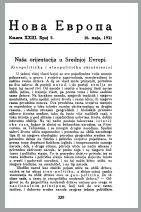
We kindly inform you that, as long as the subject affiliation of our 300.000+ articles is in progress, you might get unsufficient or no results on your third level or second level search. In this case, please broaden your search criteria.

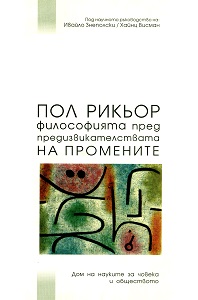




The importance of the dialogue between theology, philosophy and science is a topic of great interest, as these are three fields that have a strong impact on how people understand their existence and the universe around them. Theology is concerned with understanding and explaining the relationship between humans and the divine, and how this relationship affects human life. Philosophy, on the other hand, focuses on understanding the universe and human nature through reasoning and argumentation. Science, finally, relies on observation and experiment to explain phenomena in the world around us. Although these fields may seem separate, the dialogue between theology, philosophy and science can be of great importance for a complete understanding of reality. For example, theology can provide a moral and spiritual context for the scientific understanding of nature, and philosophy can provide a conceptual perspective on theology. In turn, science can provide evidence and arguments to support or challenge theological or philosophical statements. The dialogue between these three fields can also have a positive impact on society. Through this dialogue, better solutions to society's moral and ethical problems can be reached, as well as a deeper understanding of human nature and the surrounding universe.
More...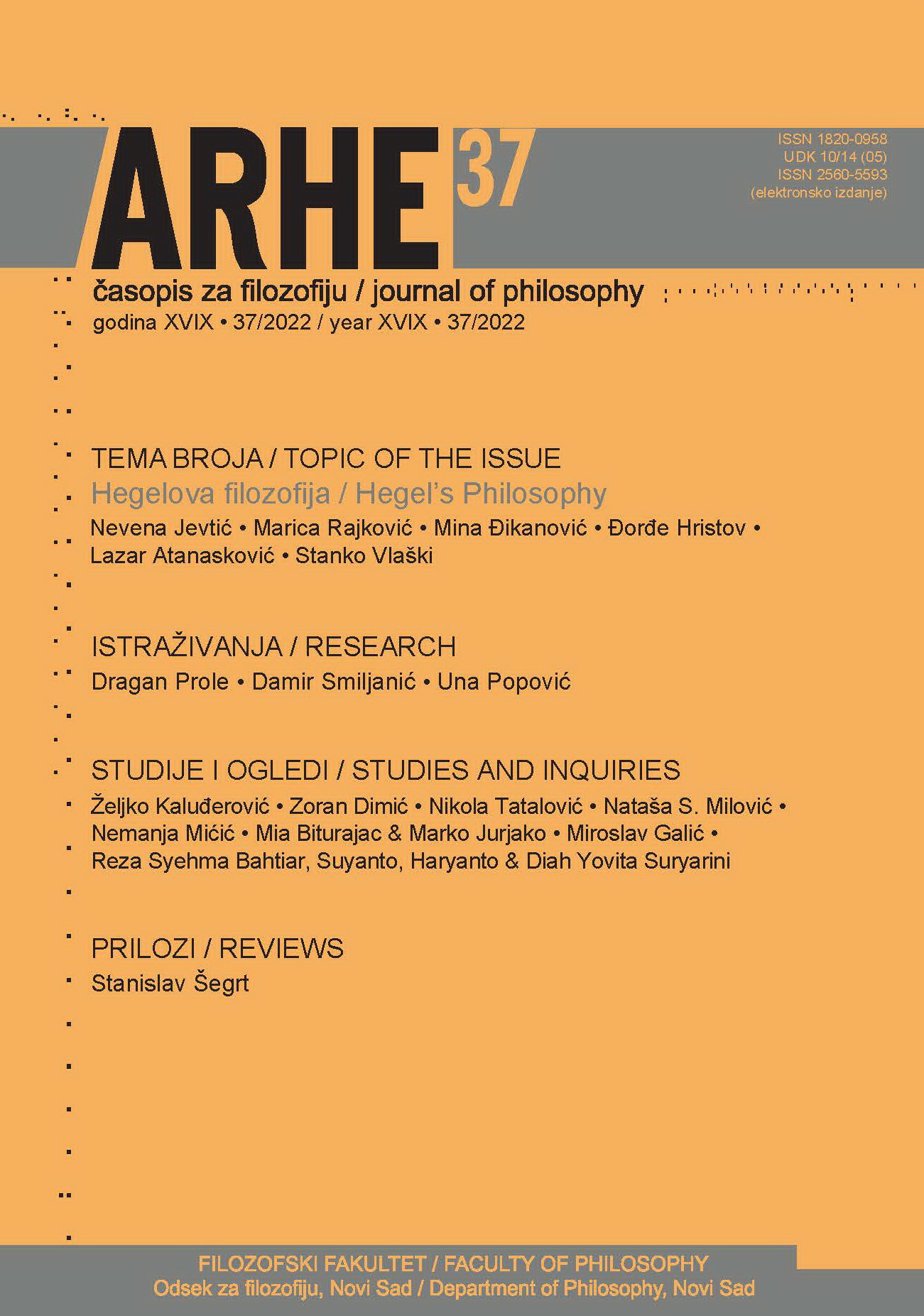
In the article, I show that Hegel’s understanding of war as a condition of state sovereignty contains several contradictions that make modern wars unviable for the sustainment of political unity. In the first place, I offer an explanation of Hegel’s conception of war as a necessity of politics, with attention to his concept of “courage”, which figures for Hegel as an alternative to the social contract theory. In the next step, I argue that this conception of courage cannot fulfil all of the requirements in Hegel’s political philosophy that would offer a guarantee of state sovereignty. I do this through a typology of wars contained in Hegel’s work — colonial, limited, and total war — demonstrating that none of these wars are capable of securing political unity in modernity. Finally, I conclude that modern wars have a sense only within Hegel’s world-history, but not in his political philosophy.
More...
This article presents an introductory investigation of the so-called original history in Hegel‘s Lectures on the Philosophy of World History. It begins with the problematization of Hegel's terminological invention Die ursprüngliche Geschichte, pinpointing the ambiguous character of originality as an adjective by which Hegel describes the practice of some historians. Hegel's concept of originality here is investigated through an inquiry towards the defining features of historiographical practice. This inquiry is led by the traces of Hegel‘s description of the practice of the first historians as creators of the lasting intellectual representations by which collective memory is constituted. Then, following the specific formulations from Hegel‘s Introductions, the practice of the original historians is further interpreted as the practice of the transmission of transitory content of perception to the medium of lasting representation. Interpretation concludes with remarks about the importance of Hegel‘s theory of Erinnerung and Gedächtnis for further understanding of his theory of historiography.
More...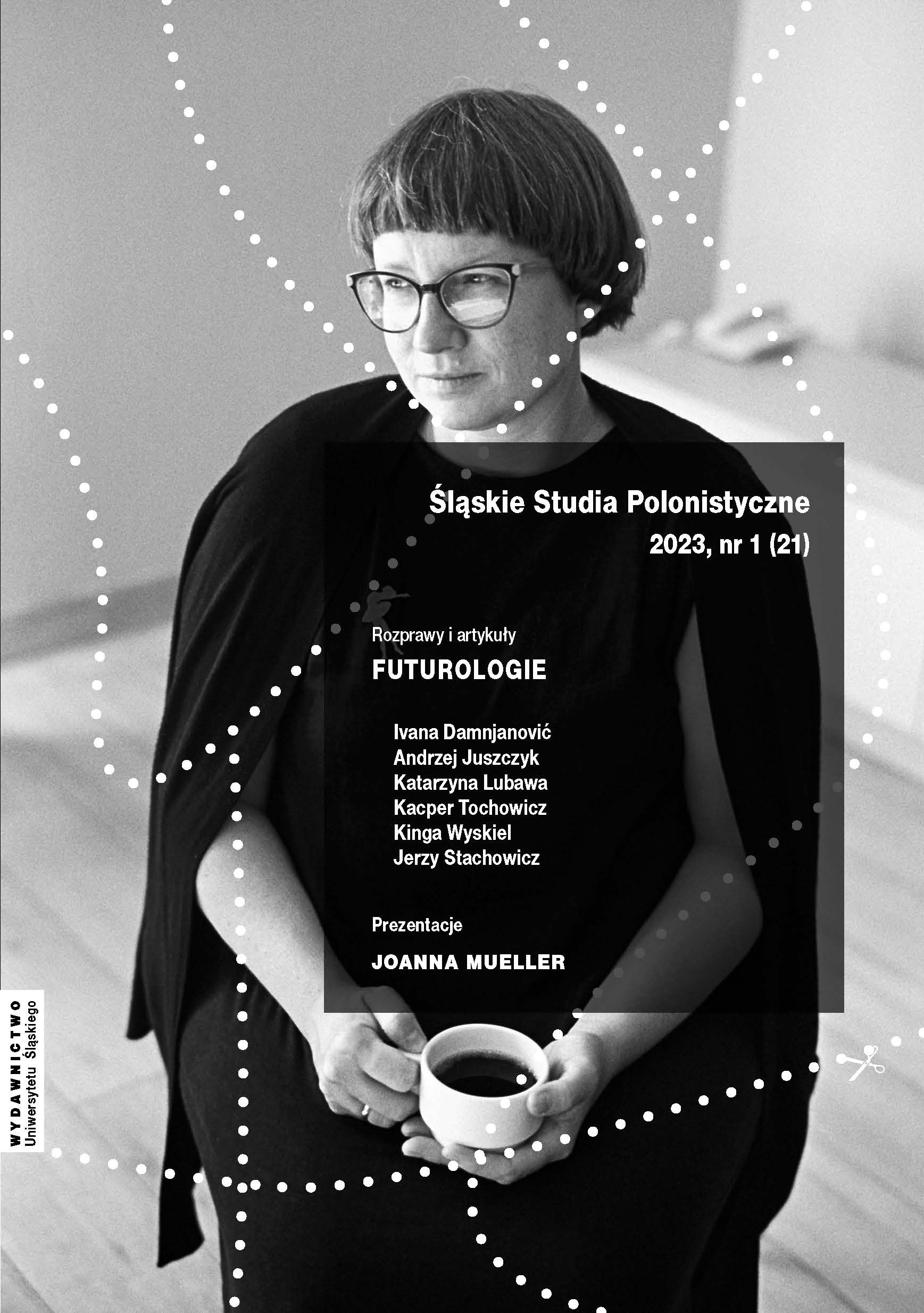
The article is devoted to the interpretation of selected motifs of Z. Po-wieść – the only strictly fictional work of the art critic and art theorist Mieczysław Porębski – in the context of Stefan Szymutko’s concepts and studies. This Silesian literary scholar was particularly interested in the works of Teodor Parnicki, with which the aforementioned “postmodern” historical novel is sometimes compared. Z. Po-wieść depicts the journey of the eponymous character, the reborn Z., through the history of European civilization. Such a plot illustrates the confrontation with “the great history” (history-being) and serves to create a certain overall vision. A comparative reading of Szymutko’s statements and Porębski’s book (as well as some of his other texts) highlights the problem of the relationship between history, reality and literature, which is particularly important for both protagonists of the article. While Szymutko clearly opposes literature (the domain of words) to empirical historical reality, Porębski vindicates the former as a tool for confronting historicity and defending individual existence. In spite of the cruelty of historical reality, artistic creation that corresponds with it allows for the achievement of catharsis and the only indelible “pleasure of history” (Szymutko’s formulation). According to Porębski, myth, like literature belonging to the so-called sphere of the third logical value, has a similar effect. And literaturę has the ability to give a mythic – timeless – actuality to what is incidental and ephemeral.
More...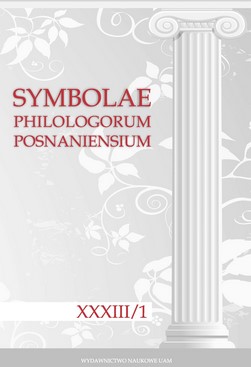
The aim of the article is to investigate the significance of Seneca the Younger in Cyprian Norwid’s reflections. Norwid, a Polish 19th-century writer, artist and thinker, focused on those aspects of Seneca’s life and work in which some connections with Christianity can be seen.
More...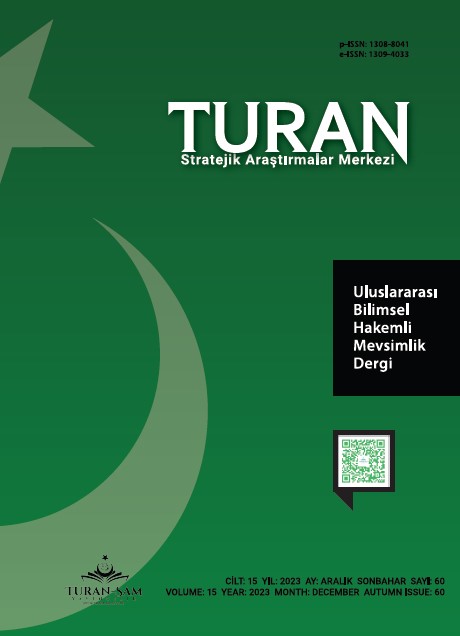
The development process of human beings from the day they emerged until today has been a subject of curiosity for science and philosophy. With the Reformation, the Renaissance, the Enlightenment and the modernization process, the adventure of humanity has gained more importance and has become a problem that scientists and philosophers have been pondering on. At this point, the idea of progress has been an important thesis put forward by modern Western thought. The concept of progress has become one of the fundamental concepts in the history of philosophy and especially in the philosophy of history. Progress has been conceived and put forward as a continuous development, change and improvement of civilizations, societies and people towards the future. During the Enlightenment, which represents an important period in the history of philosophy, the subject of progress was also given importance. The Scottish Enlightenment, one of the Enlightenment processes, and Adam Ferguson, an important representative of it, also dealt with the process of progress and tried to understand and make sense of this concept with the dynamics of the society in which he lived. This study aims to analyze Adam Ferguson's idea of progress from a philosophical perspective in the context of its relationship with morality and politics.
More...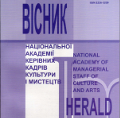
The purpose of this work is to trace the natural character of those historical metaphysical similarities that are laid down by the repetition of social changes from century to century and evoke the corresponding artistic and stylistic analogies based on the religious and cultural tendencies of nations. The methodological basis is the intonation approach of B. Asafiev’s school in Ukraine, comparative and hermeneutic prolongations of intonation in the works of D. Androsova, T. Verkina, O. Kozarenko, I. Kotliarevskyi, I. Liashenko, Liu Bintsyan, O. Markova, O. Muravska, O. Sokolova, with the use of scientific and research methods: art historical and analytical, descriptive and historical, cultural and regionalist, religious studies. The scientific novelty of the work is determined by the originality of the correlation of the layers of culture and art according to the logic of their epochal style and thought coincidence, including art historical parallels of ideological and state-building institutions, behavioural and ethical norms of the revolutionary strata of China and Italy in the 1840s and 1850s, the prevalence of stringed plucked instruments as a sign of Renaissance thinking in Europe and China, the capture of Rococo influences on the Cossack culture of Ukraine with a focus on woman’s creative participation. Conclusions. The discovery of Renaissance cultural features in the nations of the East obliges us to recognise analogies with Europe, which is recorded in the parallel of the life-behavioural and cultural-artistic actions of the Italian Risorgimento ("Renaissance of Italy" as the realisation of a romantic utopia) and the Chinese Taipingyang (the construction of the "Heavenly City" utopia as the Renaissance of the greatness of ancient China). The article also introduces the assertion of the original Renaissance "two worlds" in the biconfessional Jagiellonian Poland, in which the component of Cossack Ukraine demonstrated a tangent to the majestic achievements of prosaloon aristocratic instrumentalism in the life of kobzars-bandura players and song-madrigal female creative expression.
More...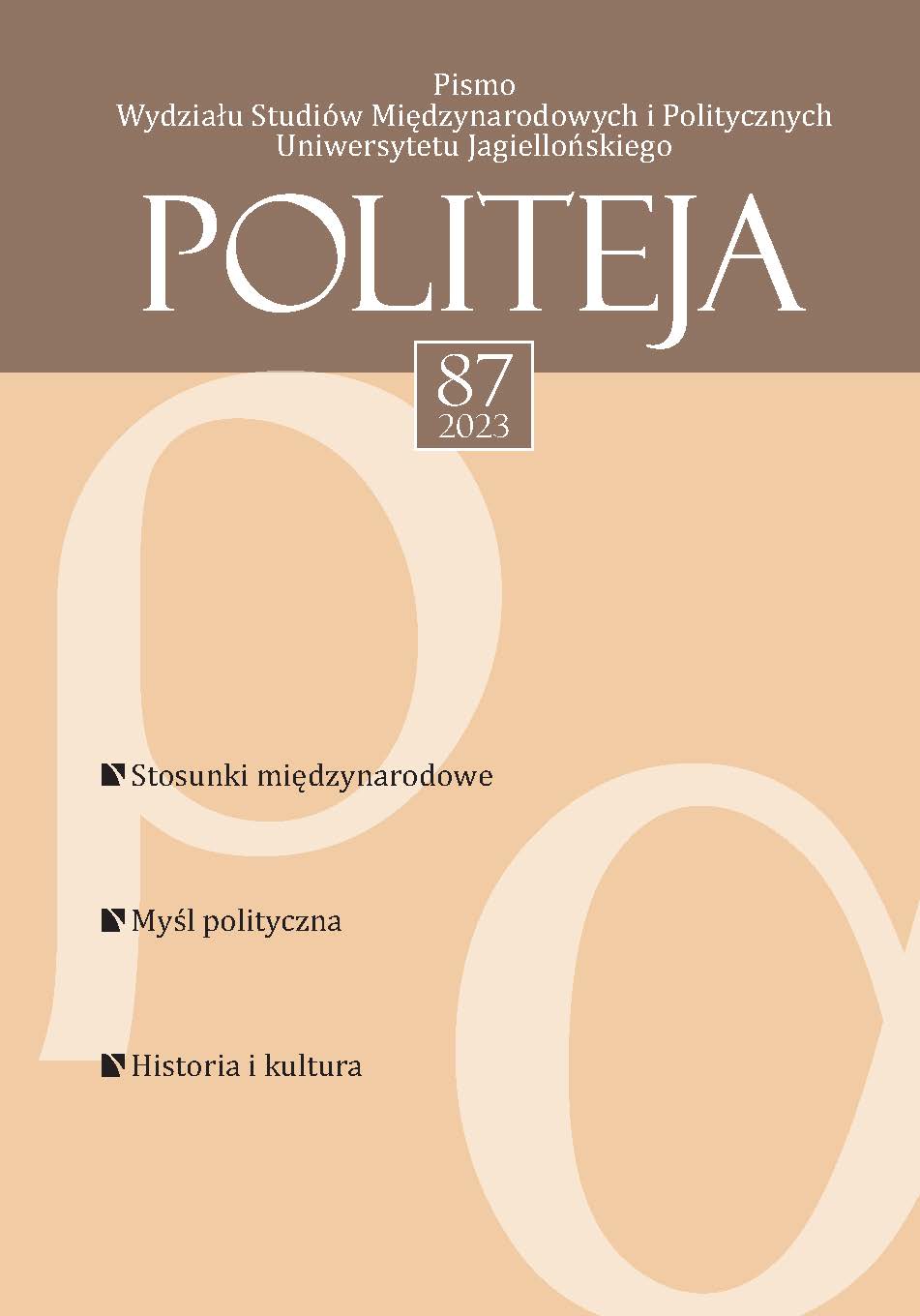
One of the most interesting groups at the turn of the 20th century was Stańczycy, active in autonomous Galicia from the late 1860s. The name of the faction was inspired by Stańczyk, the sceptical jester of Sigismund the Old, the penultimate king of the powerful Jagiellonian dynasty. This conservative group published Przegląd Polski (The Polish Review), which expressed opinions that were close to the governing elite of the province. Until the end of the 1860s, they drew upon utilitarian or liberal ideas and supported reforms, and later related to the ideas of British conservative thought and the ideas of Burke, while arguing the attempts of the liberal majority to introduce norms that would diminish the rights of every minority, and against irredentism, which neutralised the politics of emotions by replacing it with a sense of duty guided by political reason.
More...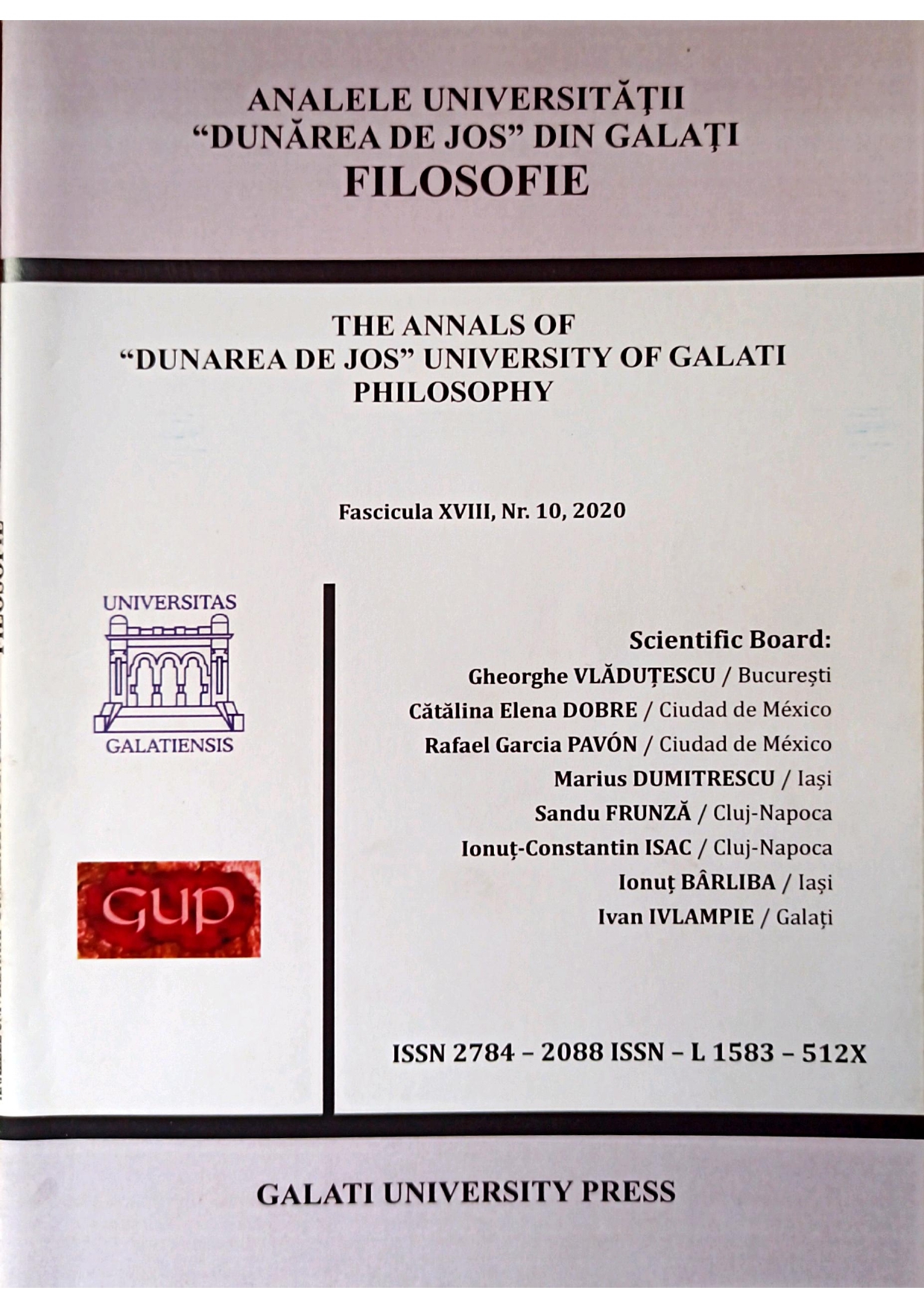
This article summarizes some of the conclusions of a larger paper where we have extensively described the context and circumstances leading to young Emil Cioran’s “crime of sympathy” for the interwar far-right movement. It is rather unbelievable how, in most cases, Cioran’s detractors do not take into consideration the many mitigating factors characterizing his particular situation: the novelty and apparent viability of the totalitarian solutions during his time, the sublimed perception of the legionary phenomenon, the obvious limitations of the transitivity of guilt, the blind passion for a genuinely great Romania, etc. Similarly, they cannot answer a simple question: Why wasn’t Cioran a registered member of the legionary movement?
More...
In the 1930s, the playwright Bertolt Brecht had a marked impact on Walter Benjamin’s life and thinking. Brecht’s epic theatre inspired Benjamin to write several texts in which the philosopher explores the concept of the “quotable gesture”. This article aims to offer an interpretation of the quotable gesture as a methodological tool for the critique of the modern alienation of tradition and the crisis of thinking. Drawing on selected essays, I analyse the principle of gestural citation as a critical-hermeneutical principle in which common pre-understanding is to be suspended in favour of particular attention towards the phenomenal and to one’s own thinking.
More...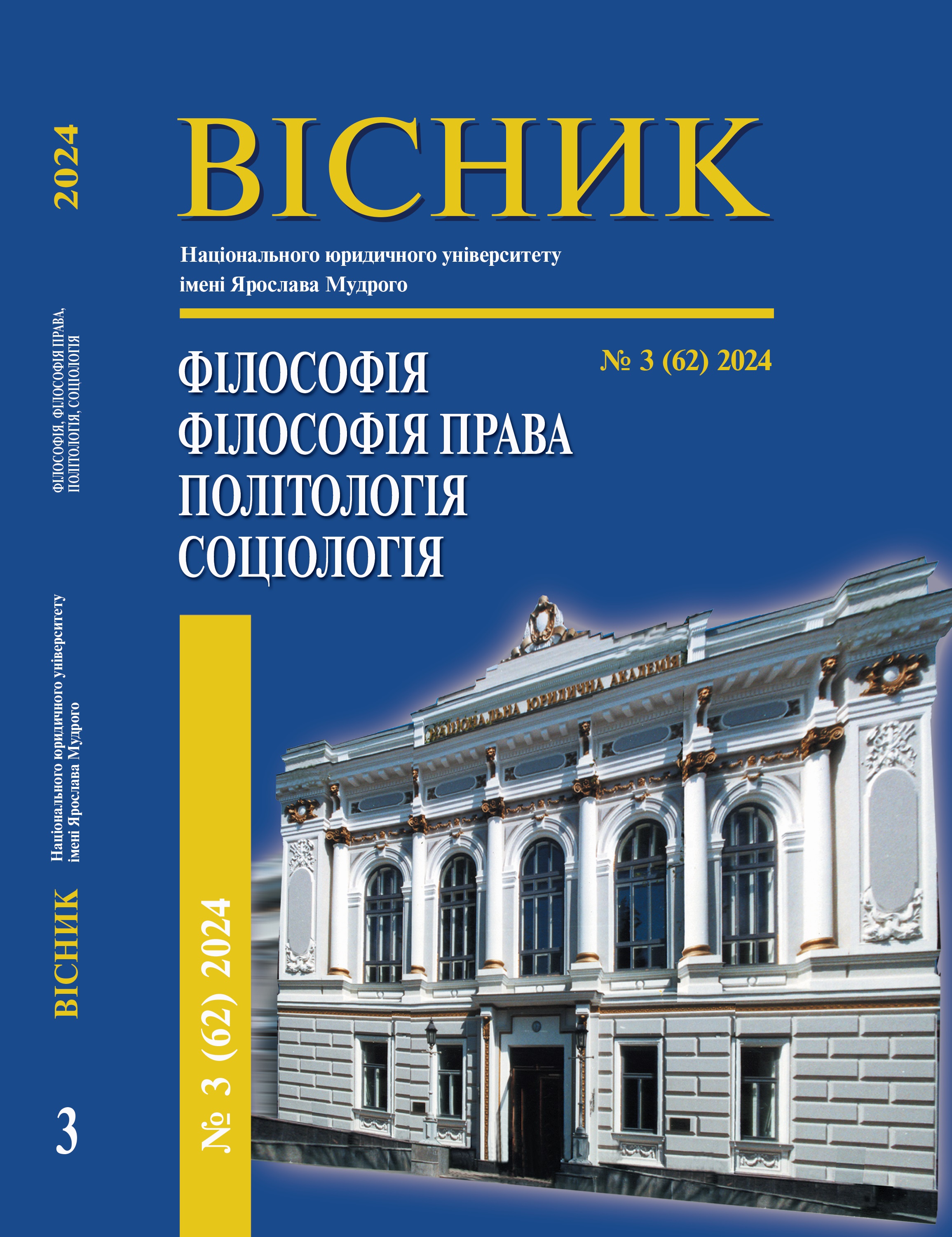
The article attempts to trace the key points of view on the problem of violence in the philosophical views of the most famous thinkers of European antiquity. It is shown that in the system of social relations, violence in its pure form plays the role of the oldest and most primitive way of resolving the objectively existing conflict of interests of the participants of the social process. The nature of the conflict is rooted in the actual inequality of one subject to another, which finds its fullest expression in the inequality of the needs of individuals. It is substantiated that violence becomes a legal regulator of public interests when the extent of its use in society is recognized by the majority. It is shown that in the context of the development of ancient philosophy, the problem of violence was considered mainly in connection with the socio-political teachings of the classics of Greek philosophy, as well as within the framework of moral discourse. The phenomenon of violence was not tolerated by representatives of ancient philosophy as a separate problem worthy of consideration.
More...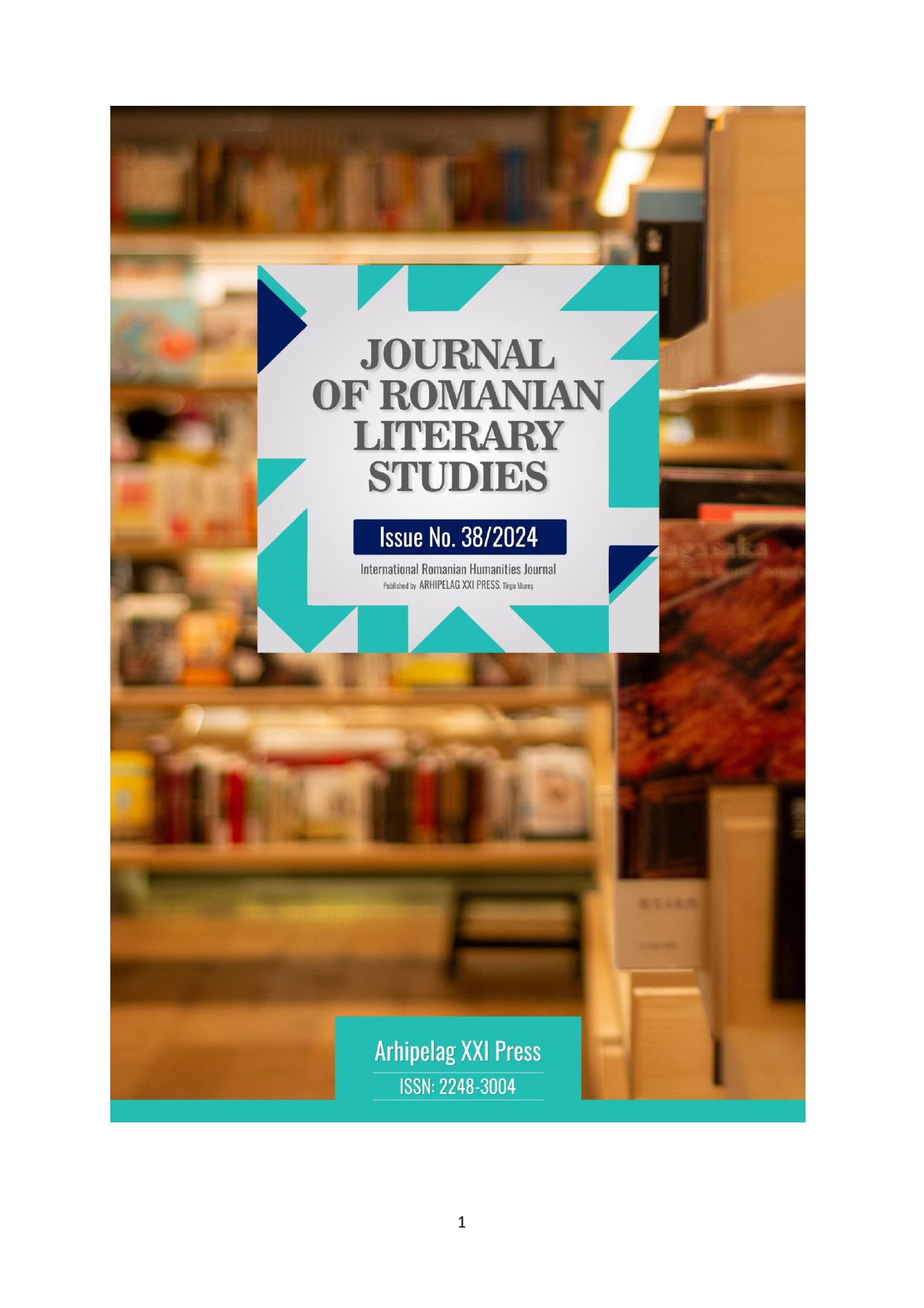
The essence of this study is the acquaintance of an array of knowledge, the Analytical Psychology, with an encompassing of certain assets of modern Physics, to undertake a cultural construction surveyed at the same time, possibly, by glimpses of metaphysical insights.
More...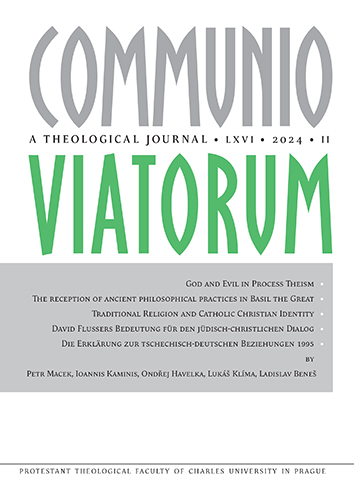
The purpose of this article is to present Saint Basil’s utilization of the philosophical heritage along with the ancient Greek literature for the benefit of Christianity. Saint Basil’s approach was influenced by a lineage of Christian philosophers, including the St. Justin the Philosopher, Origen, St. Gregory Thaumaturgus and his grandmother St. Macrina the Elder. Initially, early Christians like St. Justin the Philosopher and Clement of Alexandria portrayed Christianity as the true philosophy and the culmination of knowledge in antiquity. Then Origen employed more philosophical methods and practices in his Christian educational program. St. Basil followed this tradition, but infused his teaching with a holistic Christian interpretation. For instance, he emphasized attention to oneself in a Christian perspective. Additionally, his Address to the Young: On how they might derive benefit from Greek literature demonstrates Christianity’s capacity to assimilate and embrace other traditions while interpreting them in a manner that promotes virtue, the moral development of human being and devotion to Christ.
More...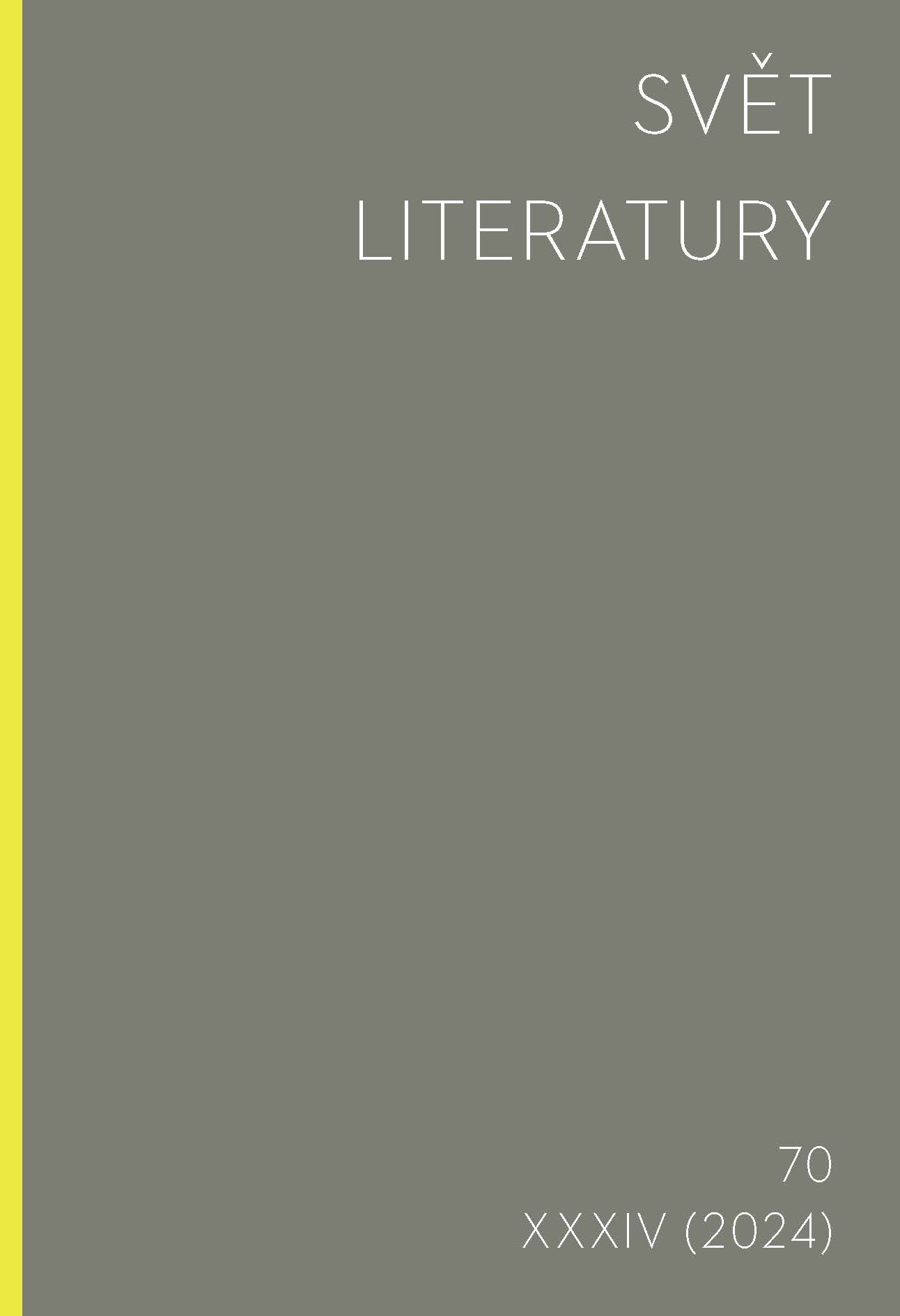
The object of the present study is a particular literary reference that repeatedly appears in Michel Foucault’s work — a reference to the work of Ann Radcliffe. We present a close study of the passages where Foucault, in one way or another, deals with Ann Radcliffe’s novels (or novels that he believed to be written by Radcliffe), and attempt to show that Foucault’s interest in the “literature of terror” is not at all accidental. For Foucault, Gothic fiction is a literary “embodiment” of the historical transition from classicism to modernity.
More...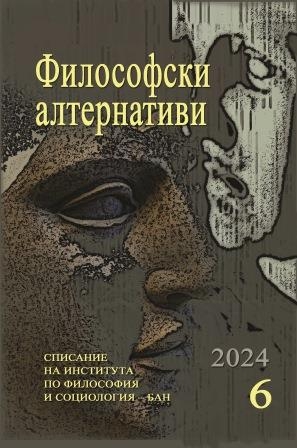
If we are to differentiate humankind from other creatures, we tend to gravitate towards the concepts of logos and language, of language and speech, and of reason and thought. In this text, I put forth the idea that the role and importance of ethos and values, of goodness and virtues in man, are mediated by thinking and logos. I argue that these qualities are fundamental and strictly distinguishing features of man, as well as degrees of consciousness. They explain the sources and beginnings of humanity and civilization in general. The foundations thus laid become generative in terms of a new ethical paradigm that emphasizes values and ethos as a factor in the development of history. It should be noted that the ethical paradigm does not replace logos with ethos; rather, it presents them in a synchronicity that embodies the true, overall essence of man, and hence of the history of civilizations and peoples. Furthermore, the ethical paradigm has the capacity to grasp and hold the spirit of the present.
More...